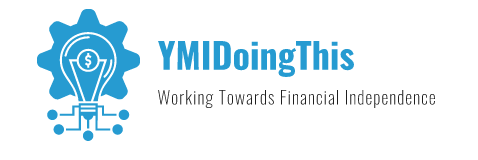
Imagine waking up tomorrow with no mortgage payment. No looming debt. Just the quiet pride of knowing your home is truly yours. For many, this dream feels out of reach—or worse, like a risky gamble. Should you sprint toward debt-free freedom, or could that urgency cost you decades of wealth-building potential? In this guide, we’ll unpack the emotional highs, hidden pitfalls, and life-changing math behind paying off your mortgage early—so you can finally decide if it’s the right move for your future, your family, and your peace of mind.
Should You Pay Off Your Mortgage Early? A Step-by-Step Guide to Making the Right Choice
For many homeowners, the idea of paying off a mortgage early feels like a financial finish line—a chance to break free from debt and own their home outright. But is it the right move for you? The answer depends on your financial goals, emotional priorities, and lifestyle needs. Let’s break down the decision into actionable steps to help you decide.
Step 1: Understand Why This Decision Matters
Paying off a mortgage early isn’t just about math; it’s a deeply personal choice. It involves balancing:
- Financial optimization (e.g., investing vs. saving interest)
- Emotional well-being (e.g., peace of mind vs. potential regret)
- Long-term security (e.g., retirement planning, legacy goals).
Ask yourself: What’s motivating me? Is it fear of debt, a desire for freedom, or pressure to “keep up” with others? Clarity here will anchor your decision.
Step 2: Crunch the Financial Numbers
The Case for Paying It Off
- Save on Interest:
- Example: A 300,000mortgageat5279,767 in interest. Paying it off 10 years early could save ~$100,000.
- Use a mortgage payoff calculator to see your exact savings.
- Reduce Risk:
- No monthly payment = Less stress during job loss, recessions, or emergencies.
- Eliminates rate hikes if you have an adjustable-rate mortgage (ARM).
- Boost Cash Flow Later:
Freeing up monthly payments can fund retirement, travel, or other goals.
The Case Against Paying It Off
- Opportunity Cost:
- If your mortgage rate is low (e.g., 3%), investing extra cash could yield higher returns (historically, ~7-10% in stocks).
- Example: Investing 1,000/monthinsteadofpayingdowna3200,000+ in 10 years.
- Tax Trade-Offs:
- Mortgage interest deductions may save you money if you itemize taxes.
- Liquidity Matters:
- Tying up cash in home equity limits access to funds for emergencies or opportunities.
Step 3: Ask Yourself These Key Questions
- Do I Have Other High-Interest Debt?
- Prioritize credit cards, personal loans, or car loans with rates above 6-8% first.
- Am I Saving Enough for Retirement?
- Contributing to tax-advantaged accounts (e.g., 401(k), IRA) often trumps mortgage prepayment.
- How Stable Is My Income?
- If your job is secure, flexibility increases. If not, liquidity may be critical.
- What’s My Risk Tolerance?
- Would market volatility keep you up at night? If yes, debt freedom might be worth “missing out” on higher returns.
Step 4: Weigh the Emotional and Psychological Factors
 Pros of Paying Early
Pros of Paying Early
- “Sleep-at-Night” Factor: The mental relief of being debt-free is priceless for many.
- Pride of Ownership: Emotional satisfaction in fully owning your home.
- Legacy Planning: Passing a mortgage-free home to heirs simplifies their financial future.
Cons of Paying Early
- Fear of Missing Out (FOMO): Anxiety that investing could have grown wealth faster.
- Lifestyle Sacrifices: Aggressive payoff might require cutting vacations, hobbies, or family expenses.
Step 5: Explore Middle-Ground Strategies
If you’re torn, consider compromises:
- Make Extra Payments Occasionally:
- Put bonuses, tax refunds, or side hustle income toward your principal.
- Refinance to a Shorter Term:
- Switch to a 15-year mortgage for lower rates and forced discipline.
- Split Your Extra Cash:
- Allocate 50% to investments and 50% to mortgage prepayment.
Step 6: Avoid These Common Pitfalls
- Prepayment Penalties: Check your mortgage terms for fees.
- Underfunding Emergencies: Keep 3-6 months of expenses in cash first.
- Ignoring Inflation: Over decades, fixed mortgage payments become “cheaper” as wages rise.
Step 7: Test-Drive the Decision
What if you pretend your mortgage is paid off?
- For 3-6 months, channel your would-be extra payments into savings or investments.
- Assess how it feels: Do you miss the cash flow, or does saving feel empowering?
Final Thoughts: It’s About Alignment
There’s no universal “right” answer. Paying off your mortgage early makes sense if:
✅ Debt keeps you awake at night.
✅ Your mortgage rate is high (>5%).
✅ You’re on track for other goals (retirement, emergency fund).
Alternatively, invest extra funds if:
✅ Your mortgage rate is low (<4%).
✅ You’re comfortable with market risk.
✅ You value liquidity and growth potential.
Your values, not just math, should drive this choice. Consult a fiduciary financial advisor to model scenarios tailored to your life.
Whether you choose to sprint toward debt freedom or invest for growth, clarity and intentionality will ensure you win either way. 🏡✨
Here are a couple helpful tools to consider in your decision:
Should I Pay Off My Mortgage Early? Your At-a-Glance Pros & Cons Checklist
Pay Off Your Mortgage Early vs. Pay the Normal Schedule Decision-Making Checklist


 Pros of Paying Early
Pros of Paying Early